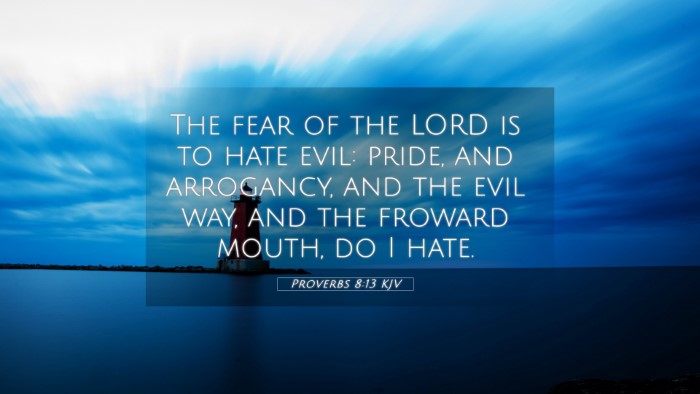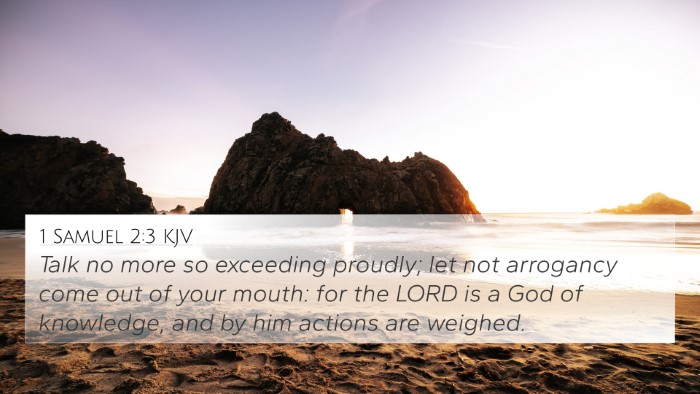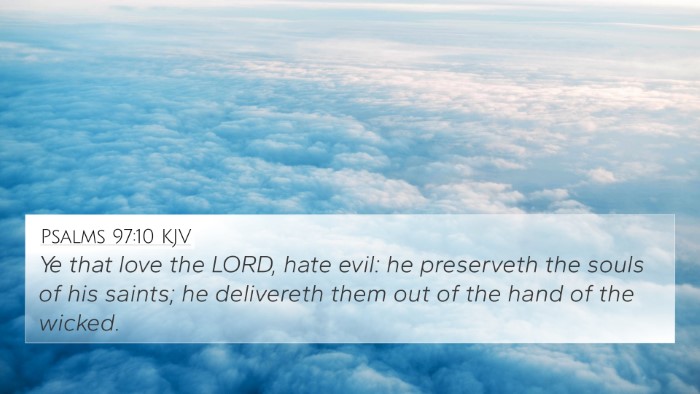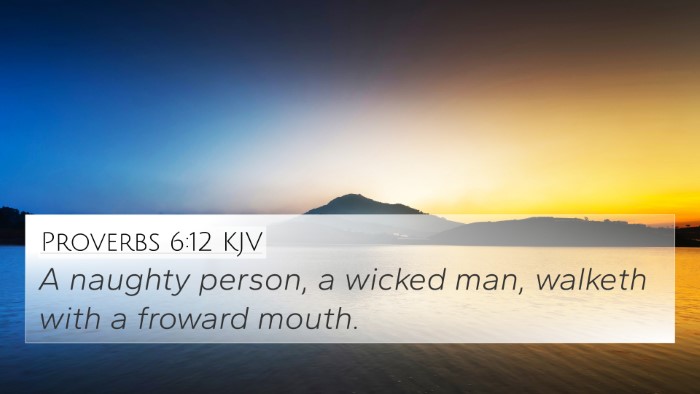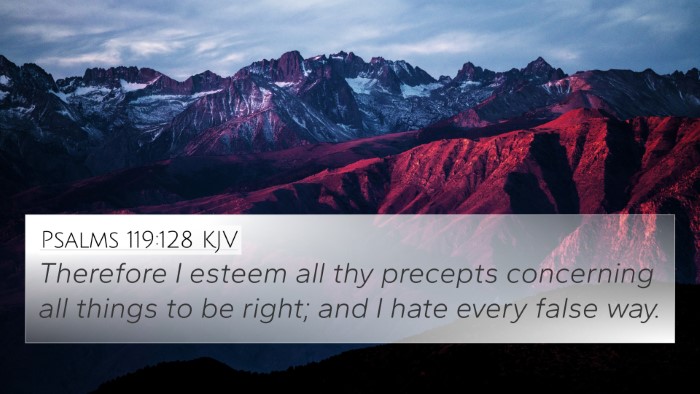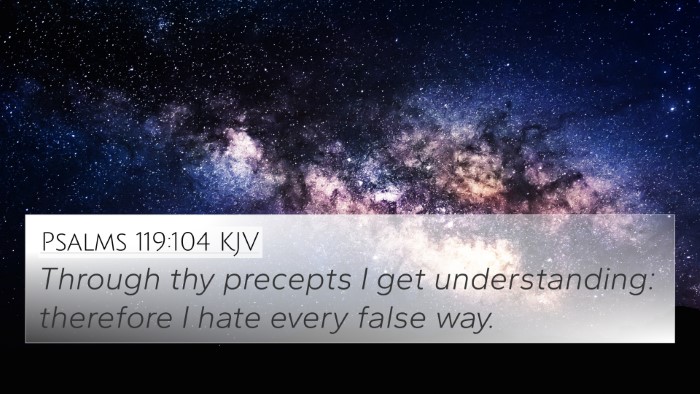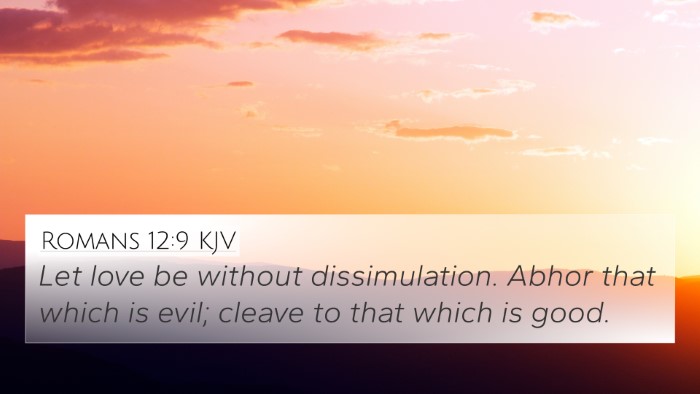Understanding Proverbs 8:13
Proverbs 8:13 states:
"The fear of the Lord is to hate evil: pride, and arrogancy, and the evil way, and the froward mouth, do I hate."
This verse captures a central theme in Proverbs, where wisdom is personified and presents the foundational attitude essential to living a godly life. Below, we explore the meaning of this verse through insights from renowned public domain commentaries.
Meaning and Interpretation
The verse emphasizes the necessity of detesting evil as a part of revering God. Several key interpretations arise from this verse:
- The Nature of God's Fear:
According to Matthew Henry, the fear of the Lord is not merely a feeling of dread but encompasses respect, reverence, and love towards God. This fear compels believers to turn away from sin.
- Identification of Evil:
Albert Barnes notes that the verse delineates specific behaviors that are considered evil, including pride, arrogance, and dishonesty. These traits are seen as the root of moral failure.
- Wisdom's Stance:
Adam Clarke highlights that wisdom personified encourages individuals to cultivate a lifestyle characterized by the rejection of such evils, promoting a path of righteousness.
- Theological Implications:
This verse asserts that a true understanding of God cannot exist where there is love for evil. Thus, the presence of divine wisdom leads one to a moral and ethical stand against evil.
Bible Verse Cross-References
Proverbs 8:13 can be related to several other biblical passages that reinforce the themes of wisdom, fear of the Lord, and moral uprightness. Here are some significant cross-references:
- Job 28:28 - “And unto man he said, Behold, the fear of the Lord, that is wisdom; and to depart from evil is understanding.”
- Psalms 97:10 - “Ye that love the Lord, hate evil: he preserveth the souls of his saints; he delivereth them out of the hand of the wicked.”
- Psalms 36:1 - “The transgression of the wicked saith within my heart, that there is no fear of God before his eyes.”
- Proverbs 3:7 - “Be not wise in thine own eyes: fear the Lord, and depart from evil.”
- Isaiah 11:3 - “And shall make him of quick understanding in the fear of the Lord: and he shall not judge after the sight of his eyes, neither reprove after the hearing of his ears.”
- Proverbs 14:16 - “A wise man feareth, and departeth from evil: but the fool rageth, and is confident.”
- James 4:6 - “But he giveth more grace. Wherefore he saith, God resisteth the proud, but giveth grace unto the humble.”
Connections Between Bible Verses
The verse serves as a connection point for understanding biblical morality, emphasizing that wisdom is inherently tied to the fear of God and the abhorrence of evil. Here are some relevant points that highlight the connections:
- Old Testament Teachings: This verse aligns with the recurring motif in the Old Testament, where the fear of the Lord is a prerequisite for wisdom (Job 28:28).
- New Testament Insights: The teachings of Jesus in the New Testament frequently echo these themes, where humility and the rejection of sin are paramount for spiritual growth (Matthew 5:3).
- Behavioral Ethics: The frequent admonitions against pride and arrogance in the Bible reflect the overarching theme of humility before God, as seen in Proverbs and echoed throughout the epistles.
How to Use Bible Cross-References Effectively
To deepen the understanding of Proverbs 8:13, engaging with tools for Bible cross-referencing can be beneficial. Here are methods to explore:
- Bible Congruence Tools: Utilize a Bible concordance to find terms like "fear" and "evil" to unearth related verses.
- Online Resources: Access Bible cross-reference guides that may offer thematic studies on pride and humility.
- Group Studies: Engage in cross-reference Bible study groups where discussions can reveal interpretations of related verses.
Thematic Bible Verse Connections
Understanding Proverbs 8:13 in conjunction with other Scriptures allows for a richer exploration of biblical themes:
- Pride vs. Humility: This theme is prevalent throughout the Proverbs, consistently warning against the dangers of arrogance as it separates one from divine wisdom.
- The Nature of Evil: The recurring depiction of evil provides insight into the nature of sin and its opposition to the divine character.
- Righteous Living: The call to live righteously is reinforced across both Testaments, weaving a narrative that defines the character of God’s people.
Conclusion
Proverbs 8:13 serves not only as a critical insight into the nature of the fear of the Lord but also as a cornerstone for understanding the moral fabric woven throughout Scripture. By examining this verse alongside related passages, believers can cultivate a deeper relationship with God, characterized by reverence and a distaste for evil, ultimately leading to wisdom.

